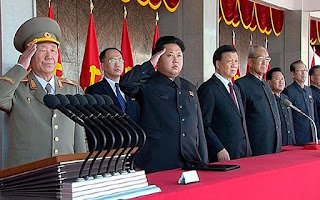Constitutional Politics in West African Countries
Constitutional Politics
in West African Countries
by E. Stanley Ukeni
My sense is
that most of the leaders of West African Countries would find agreeable the
fact that constitutional politics is necessary, and indeed essential, for the
establishment of the framework for a sustained economic and infrastructure
development in their various countries.
It has to be
obvious to most of the political leadership of West African States that
investor confidence in their various economies can only be sustained in an
investment friendly and conducive rule-based society that is stable, adaptive
to global changes and open—with a government that is accountable to, and
representative of, the governed.
However,
there are powerful and entrenched sociopolitical factors that militate against
the effective implementation of constitutional politics in most West African
countries.
It is a fact
that practically all the countries that make up the West African sub-region
have written constitutions , but having a constitution does not necessarily
mean that a country practices constitutional politics, or that its leaders have
any intentions of upholding the constitutional mandates of the rule of law.
In almost
all of West African politics there are entrenched and intractable
ethno-religious factors that seem to supersede the needful adherence to
constitutional norms in the internal and regional politics of West African countries.
These intractable social factors are what give rise to the struggle for ethnic
or sectarian dominance within the politics of the nation-states of the West
African sub-regions.
This is
largely because; in West African countries political power translates into the
control of the nation’s natural resources and the vast wealth that is generated
from their exploitation. This State control of wealth derived from the
exploitation of national resources maintains the politics of patronage, which
is practiced in much of African countries. The politics of patronage, as
opposed to the free market system, means that the executive branch of
government often decides who gets rich—a decision that should be left market
fundamentals.
This
singular desire for political dominance compels contending power blocs to
disregard constitutional norms when it serves their goal of gaining or
maintaining political power at all cost. The unfortunate consequence of this is
an unmitigated and festering corrupt practice amongst the political leadership
of West African countries.
Sadly,
corruption has become the primary denominator amongst the political elites in
most West African countries, in the absence of clear and defined national
cohesive ideals, or an articulated progressive national vision, to sustain a
functional constitutional democracy. A major casualty of this inept and
visionless political leadership is unfortunately the practice of true
constitutional politics within West African countries.
However,
there are glimmers of hope for an African political renaissance on the horizon.
I believe this because there are emerging, a new crop of African political
leaders who are driven by a selfless passion to serve their nation in the sole
interest of the governed. These emerging
political mavericks represent the hope of a new vision for a truly
representative democratic leadership that is anchored firmly on the core
principles of constitutional politics.
The
sustenance and future progress of democracy in West African States is dependent
on empowering and supporting these new crops of leaders—whose character have
demonstrated proven integrity.
Copyright ©
2014-2015, E. Stanley Ukeni. All Rights Reserved
Photo
courtesy of 24th African Union Summit
Photo
courtesy of US Government’s Young African Leaders Initiative





Comments
Post a Comment